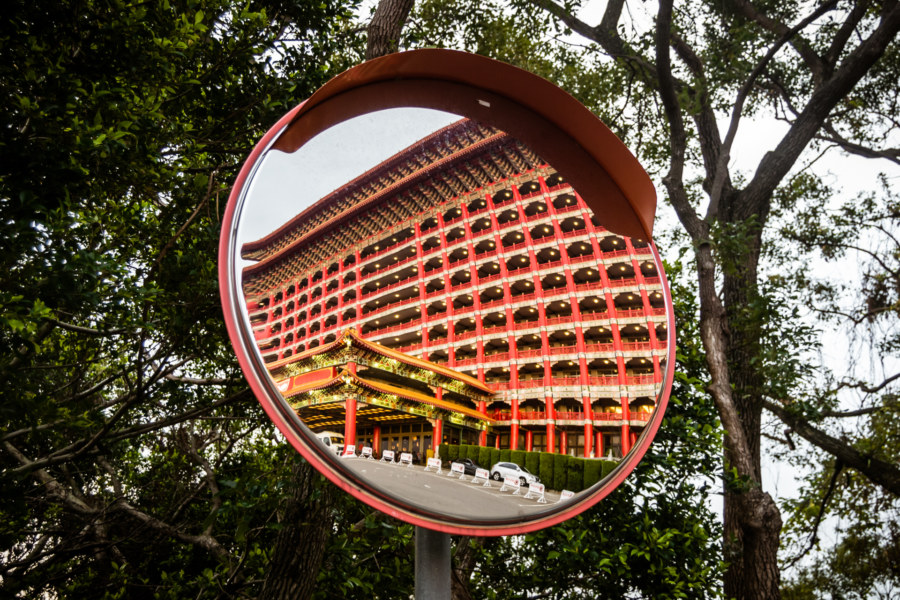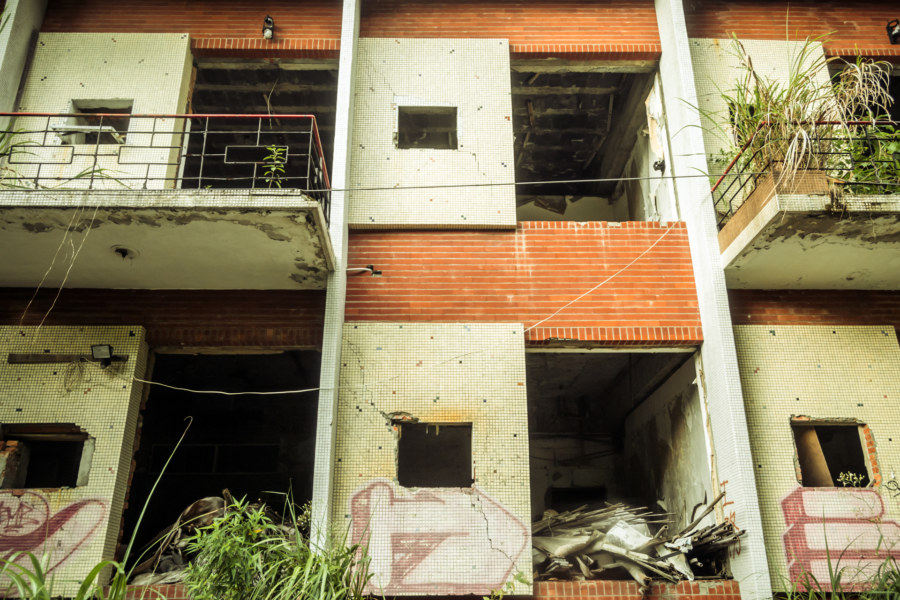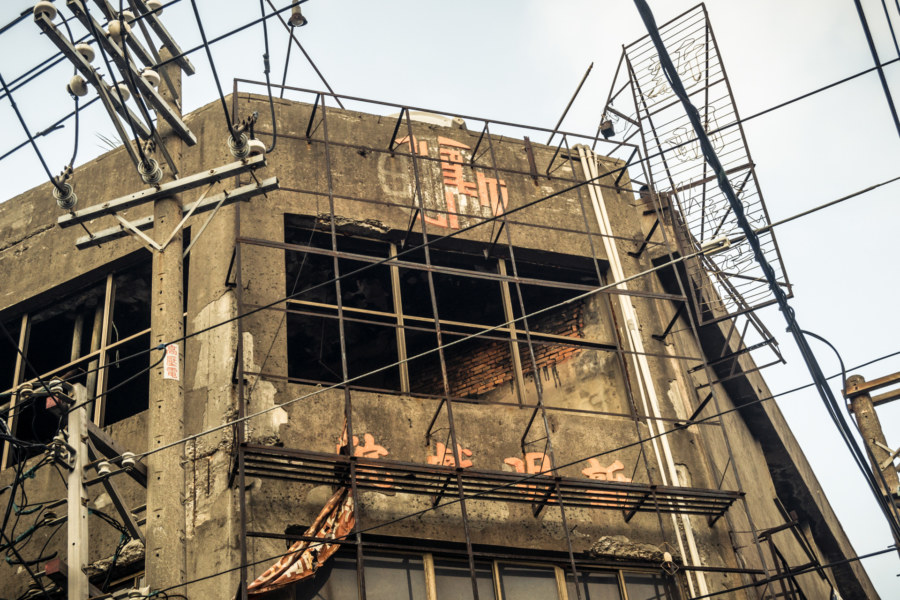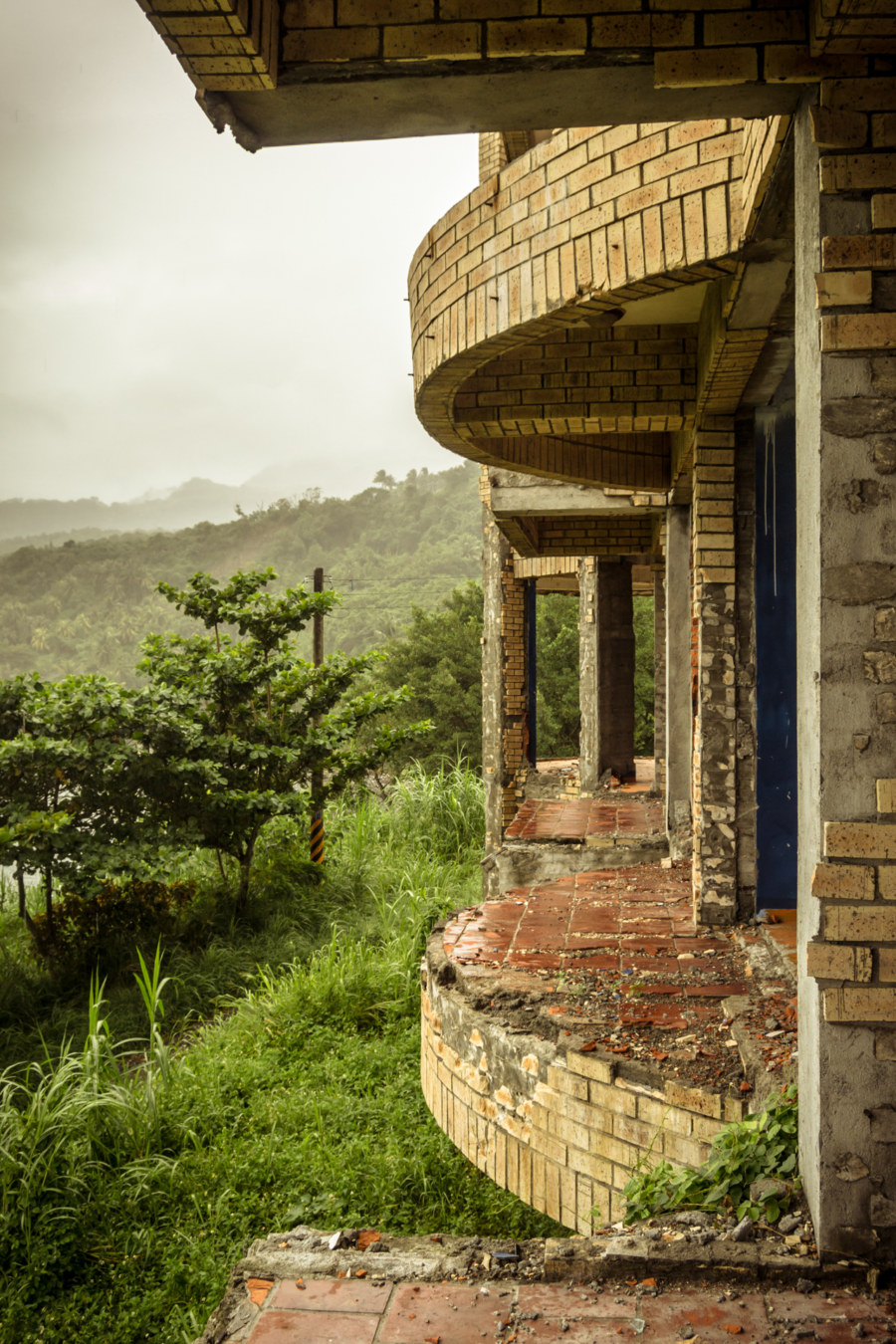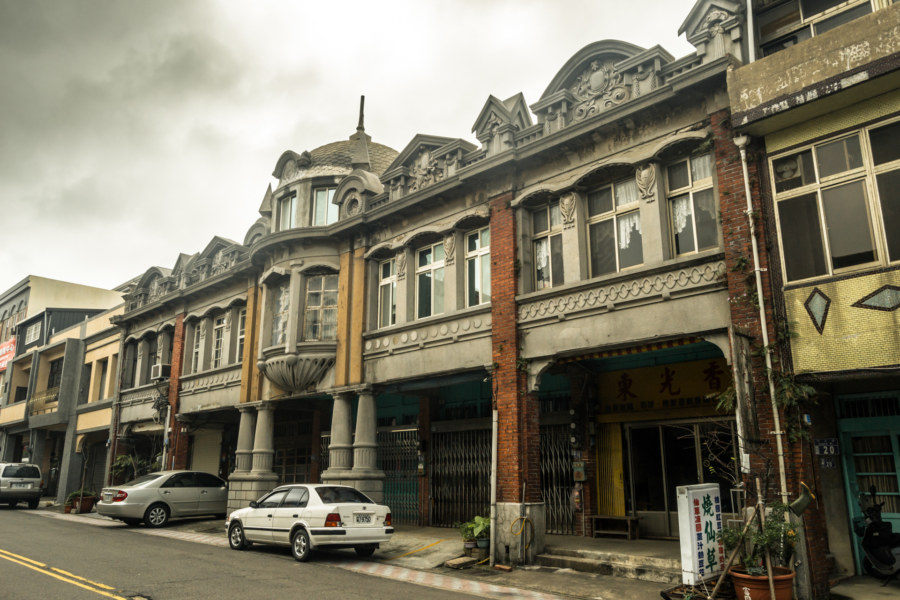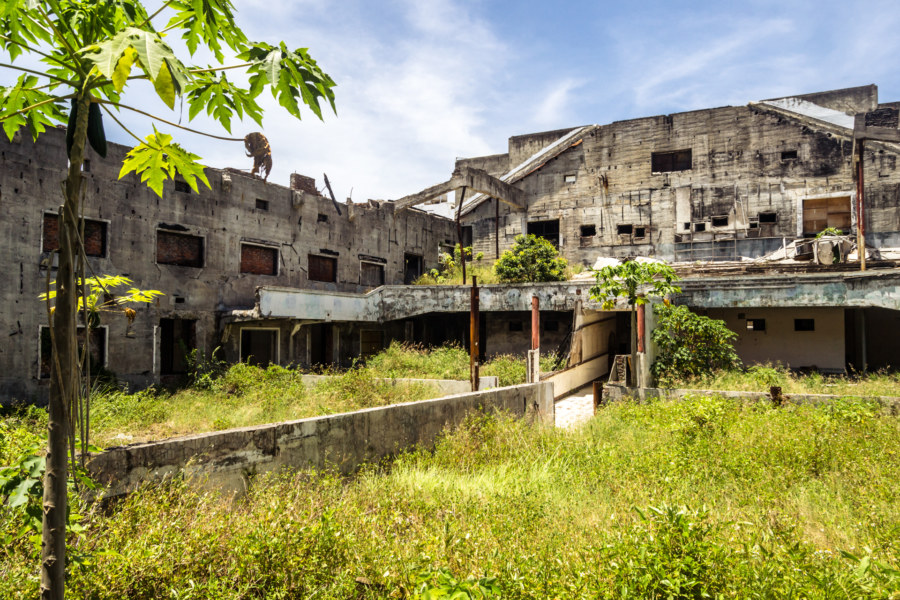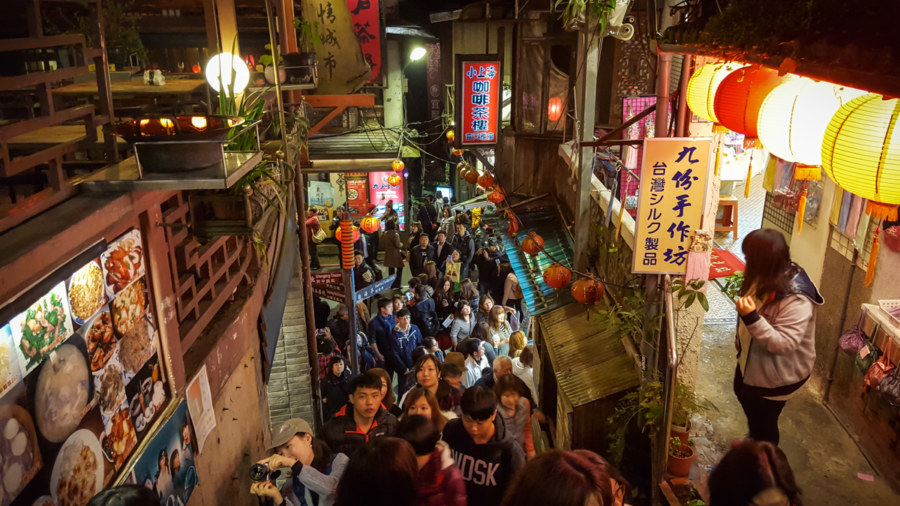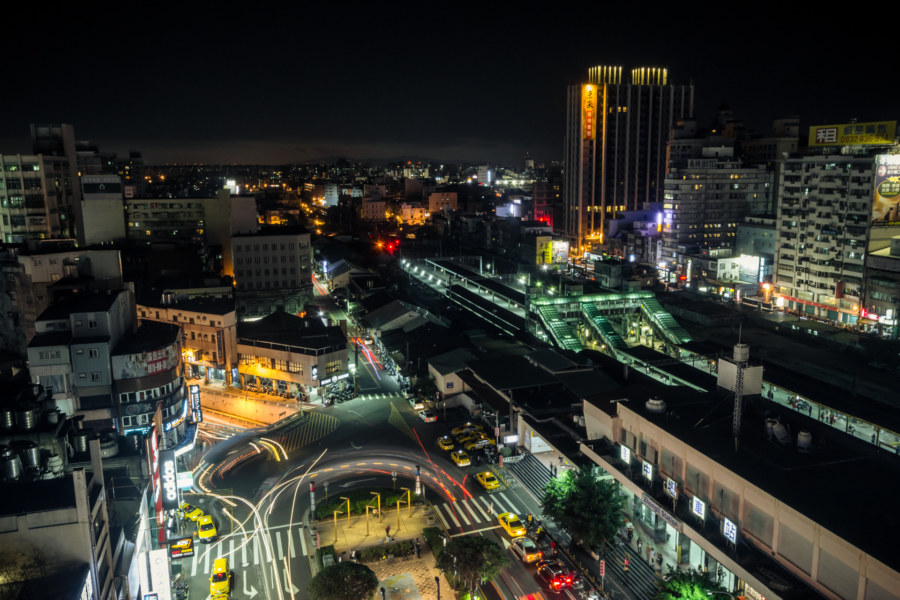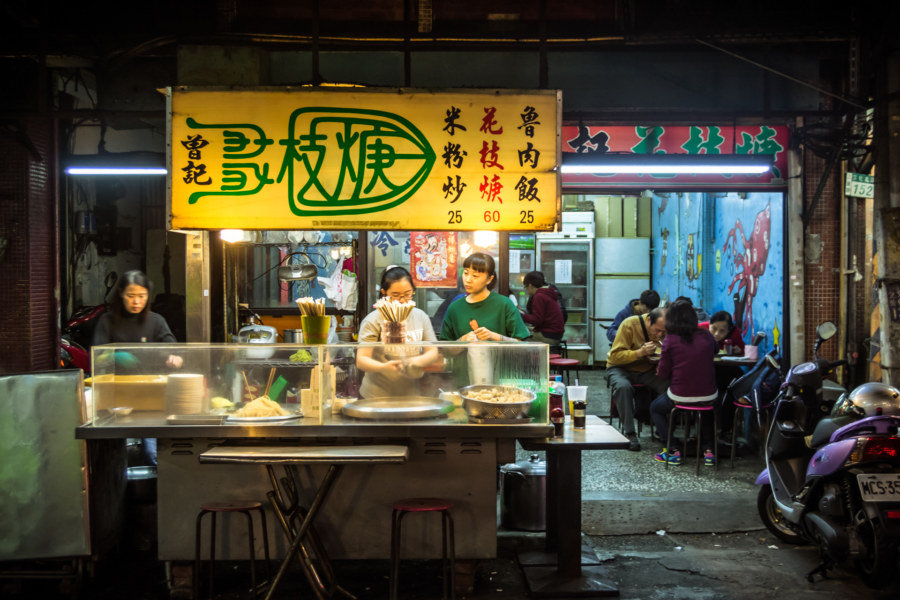Yesterday’s impromptu ride around the riverside bikeway network delivered me to the palatial Grand Hotel (Yuánshān Dàfàndiàn 圓山大飯店), a famous landmark in Zhongshan, Taipei. Located on a hilltop overlooking a bend of the Keelung River (基隆河), it was established in 1952 at the behest of generalissimo Chiang Kai-shek to provide the ruling elite with a luxurious place to host and entertain foreign dignitaries. The distinctive building seen in these photos was completed in 1973 and was the tallest building in the Free Area of the Republic of China until 1981.
Beitou Asia Pacific Resort 北投亞太溫泉生活館
On the last day of my round-the-island bicycle tour of Taiwan I undertook a brief excursion to the hot springs area of Beitou. I had expected the previous night to be my last on the road but a series of flat tires kept me from finishing my journey. With time to spare the following day I took a meandering route back to Taipei and, as luck would have it, also chanced upon one more ruin to explore. Not too far up the road from the majestic Thermal Valley (地熱谷) I noticed the crumbling outlines of a building that I correctly assumed was a derelict hot springs hotel: Asia Pacific Resort (北投亞太溫泉生活館).
Zhongli Xinming Theater 中壢新明戲院
In the last year or so I have found and explored numerous abandoned movie theaters in Taiwan. It all started when I stumbled upon Datong Theater (大同戲院) in Taitung City last June. Since then I have learned much more about the Taiwanese cinema industry: how many theaters are likely to be found in a city of a given size, where they are likely to be found, when they were likely to have been abandoned, and so on. Not long after moving to Zhongli a few months ago I put this growing awareness to the test by cycling around town one morning, finding several theaters new to me, all within close proximity to one another. One of these, Xīnmíng Theater (新明戲院), is the subject of this post. Public records indicate the business was registered around 1980 and lapsed in 1997, though it almost certainly closed sometime before then.
Jiamuzi Bay Minsu 加母子灣民宿
Jiāmǔzǐ Bay 加母子灣 is a beautifully remote and scenic stretch of coastline just north of Taitung City in Donghe, Taitung. It is also home to the gutted ruins of an abandoned mínsù 民宿 (a funky bed and breakfast or homestay-style inn) readily visible from just about anywhere along the bay. While cruising along the coastal highway on my first Taiwan bicycle tour in late 2013 I stopped two stops to take a closer look: once beneath the moody remnants of Typhoon Usagi and again on a sunny afternoon the following day.
Fugang Old Street 富岡老街
Fùgāng Old Street 富岡老街 is an obscure anachronism in the western part of Taoyuan, Taiwan. It extends from a railway station that opened during the Japanese colonial era in 1929 through the heart of this small Hakka town. The coming of the railroad brought prosperity to the area and several ornate shophouses were built around the station in a mishmash of architectural styles common at the time. Nowadays it is just another street in rural Taiwan, albeit one with a little more history than most, possibly because it is too unimportant a place for modernization to have swept away these vestiges of the past.
Zhongyuan Theater 中源大戲院
Zhōngyuán Theater 中源大戲院 is a second-run theater located in the heart of Zhongyuan Night Market 中原夜市 in Zhongli, Taiwan. Zhongyuan Theater is ideally located next to the university of the same name amidst a huge population of budget-conscious students—which may explain why it remains in business unlike hundreds of other old theaters that have fallen into ruin in recent years, victims of changing consumer habits and strong competition from more modern multiplexes. Zhongyuan is also one of the very last theaters in the nation where you will find hand-painted movie posters hanging outside, a nostalgic practice more widely associated with Chin Men Theater 全美戲院 down in Tainan.
Taitung Datong Theater 台東大同戲院
In June 2015 I undertook a bicycle trip from Tainan to Taitung City, where I spent an extra day wandering around to get more of a feel for Taiwan’s remote southeastern capital. Mere minutes after leaving my hotel, immediately after chancing upon the historic Taitung Chinese Association 台東中華會館, I noticed the stark outline of an abandoned building at the end of a short laneway leading off of Zhōngzhèng Road 中正路. After taking a closer look I realized it was yet another abandoned movie theater, of which there are many scattered all around Taiwan.
A Quick Trip to Jiufen and Keelung
Last weekend I enjoyed a couple of days outside of Taipei in the northeastern part of Taiwan. I went there with friends, ostensibly to show them around Jīnguāshí 金瓜石 and Jiǔfèn 九份, a famous mining town and major tourist attraction in the mountains of Ruifang, and ended up staying in Keelung for the night on a whim. Having recently purchased a new phone I bombarded Instagram with numerous pictures and plenty of commentary as the trip progressed. This quick and dirty post is a collection of some of my better smartphone snapshots as well as an experiment in blogging with broader brushstrokes. Perhaps you will get a sense of how I travel: spontaneously, intuitively, and with a keen eye for details.
Zhongli Caishen Building 中壢財神大樓
In my first dispatch from Zhongli I shared a photograph of the Cáishén Building 財神大樓, a rundown entertainment complex next to the train station that I meant to explore at some point. Not long after posting that I got around to checking it out—and much to my surprise, despite the incredibly rundown exterior most of the building is still occupied by hotels, daytime dance clubs, mobile phone booths, and other businesses serving the many Southeast Asian migrant workers of Taoyuan. There is, however, one part of the building that seemed obviously abandoned from street level; the skeletal outline of some kind of UFO-like structure on the rooftop demanded further investigation.
Archaic Squid Soup
I was wandering through Sānhé Night Market 三和夜市 on the first day of the new year when this small shop caught my eye. The formal name of the place is Céngjì Huāzhīgēng 曾記花枝羹 and, as the last three characters would suggest, they specialize in squid thick soup, a popular Taiwanese snack. The highly stylized characters on the signboard look something like seal script 篆書 to my inexpert eyes—with the last character, “gēng 羹”, swapped for the more traditional “焿”. Don’t ask me to make sense of that first character, mind you—it is enough to know that “huā 花” means flower.
